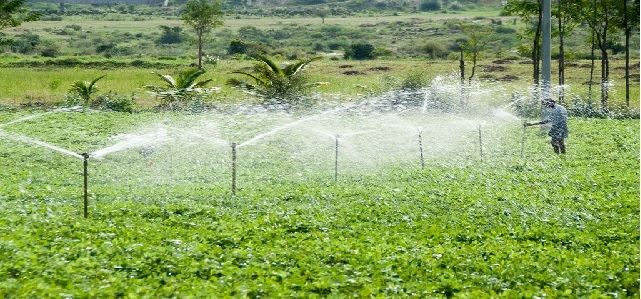Championed by the 3 African HLPW members (South Africa, Mauritius and Senegal), the programme will focus on overcoming the challenges constraining Africa's efforts to assure water, food and energy security and, in turn, play a significant role in global efforts to provide the environmental security required to address the political, economic and social factors underlying migration, displacement and regional and national security.
The overall objective is to enhance water security and sustainable sanitation; and – in turn – facilitate industrialisation; job creation; and climate resilient development through – among others – economic analysis and transaction management of targeted gender sensitive investments towards the achievement of SDG 6: ensure availability and sustainable management of water and sanitation for all.
EXPECTED OUTCOMES
- African Water Investment Guarantee Fund established, operationalised;
- SDG 6 investments in Water and Sanitation prepared and implemented to support job creation, gender empowerment and industrialisation;
- Water security, sustainable sanitation and climate resilience integrated in regional and national development plans;
- Bankable projects prepared using the water-energy-food-ecosystems nexus methodology and governments supported to mobilise resources for implementation, including by establishing cross-sectoral financing mechanisms;
- Valuing water principles fully integrated into decision support systems for domestic economic planning; financial resources allocation and investment;
- Business case for investments in water security and sustainable sanitation strengthened and the profile of water raised as an essential success factor for strategies to achieve sustainable, inclusive, and climate-resilient economic growth and transformation in Africa; and,
- Innovative public-private partnerships for infrastructure financing and transaction management operationalised and institutional capacity enhanced for optimal development, governance and management of environmental and natural resources to unlock Africa's development potential.
Projections of an African population of 1.6 billion by 2030 translate into a need to produce at least 50% more food; and at least a tenfold increase in water needs for energy production to support modernisation of economies and social progress. Rapid urbanisation and industrialisation will both increase the water demand and, on the basis of current trends in sanitation services provision, increase environmental degradation and the pollution of water bodies. Coupled with the anticipated impacts of climate change on water availability, the need to protect and better manage Africa’s freshwater resources – to avert the growing risks and uncertainties to economic productivity and political stability – cannot be overemphasised.
Projections of an African population of 1.6 billion by 2030 translate into a need to produce at least 50% more food; and at least a tenfold increase in water needs for energy production to support modernisation of economies and social progress. Rapid urbanisation and industrialisation will both increase the water demand and, on the basis of current trends in sanitation services provision, increase environmental degradation and the pollution of water bodies. Coupled with the anticipated impacts of climate change on water availability, the need to protect and better manage Africa’s freshwater resources – to avert the growing risks and uncertainties to economic productivity and political stability – cannot be overemphasised.
Source: 2014 Africa Water and Sanitation Report


